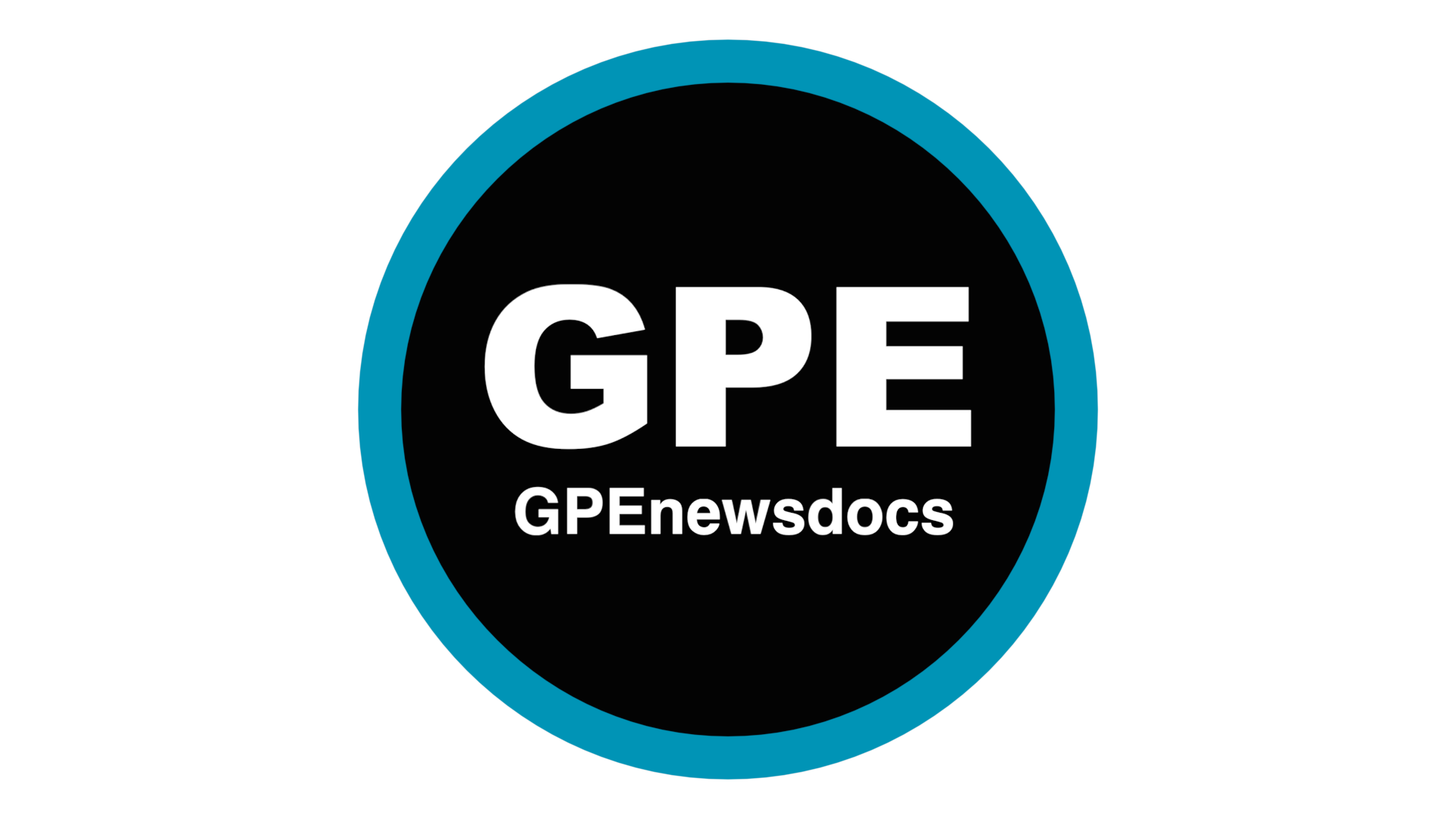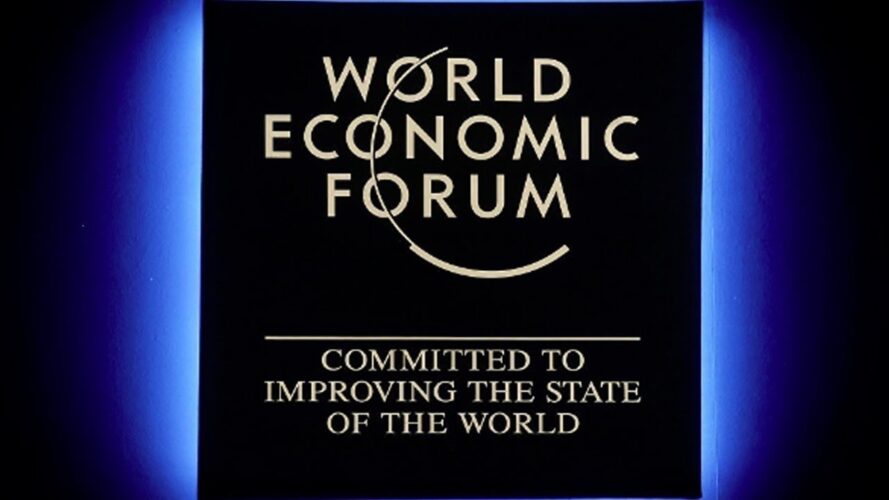The process of globalization has reached a stage where transnational corporate driven governance systems are displacing democracy and nation-states says Harris Gleckman in a 2 part interview unpacking corporate capture of global governance. In Part 1, Gleckman explains that whereas in the past transnational corporations were powerful actors at least at the international level there were nation-state based governors; however today nation-states are being replaced by the ‘multi-stakeholder’ organization of globalization.
May 24, 2019 Produced by Lynn Fries
TRANSCRIPT
HARRIS GLECKMAN: The question really is: What is the way in which the world economic system should be organized and governed? Should it be governed by countries making the rules, perhaps through the United Nations, for governing the world economy? Or should the rules and the practices be made outside the sphere of governments and under the rule of multinationals?
And in effect, in the last 70 years, that has become the dominant form of global governance arrangements, where the international system and the UN look at issues which are important, but not crucially central, to the governance of the global system. What has evolved is that the role of the UN has shrunk. It’s no longer even really attempting to govern globalization. And the transnationals have a greater sphere of influence of making crucial decisions about where work is in the world, where food is, where natural resources come from and go to, and how the world financial system operates. And we’re seeing significant changes in our lives because of the switch in the degree to which the international market globalization makes key governance decisions for the world.
LYNN FRIES: It’s The Real News. I’m Lynn Fries. And that opening clip was from Q&A with Harris Gleckman on his book Multistakeholder Governance and Democracy: A Global Challenge. This show is a report on that conversation. Harris Gleckman is a senior fellow at the Center for Governance and Sustainability at the University of Massachusetts, Boston, and director of Benchmark Environmental Consulting. Formerly, Dr. Gleckman was chief of the New York office of UNCTAD, senior officer for the first Financing for Development Conference, and chief of the environmental unit of the United Nations Center on Transnational Corporations.
Over a period of 30 years he undertook policy-oriented research on multinational corporations, global environmental management, financing for development, global governance institutions, and the economics of climate change. He’s currently working on a handbook on the governance of multistakeholderism.
Among the first things I explored with Harris Gleckman was to get his take on a comment by the author of Shadow Sovereigns, Transnational Institute’s Susan George. The comment was about the United Nations Center for Transnational Corporations, where Harris Gleckman had served as chief of the environmental unit. We go first to a clip from the UN Human Rights Council, as Susan George has the floor.
SUSAN GEORGE: The general remarks I would like to make first are to remind you of the history of transnational corporations in this institution, in the United Nations. In 1973, the UN Center on Transnational Corporations was founded. It was also trying to create a binding treaty, a code of conduct, which would have been the necessary law for transnationals. It lasted for 15 years. It delivered some extremely important reports. But it was eventually crushed by the pressure from the United States on the UN to shut it down, and that happened. The second thing is that now we only have the Global Compact at the United Nations. Now, the principles themselves are very good. No one can argue with those principles, which may have been signed at the top, but which has not become doctrine in the subsidiaries. And it is a part of the enormous trend towards corporate self-regulation, corporate social responsibility, as it is known. But it is corporate self-regulation.
HARRIS GLECKMAN: There are a lot of pressures on how to evolve the globalization project within the corporate world. Part of that, of those fights, is to say that the multinationals should set the rules, and not have either UN standards on tough issues on public policy, on environment, on health issues; nor should governments extend their domestic ordinances in the international market. There are others in the corporate world who even see the UN articulating common voluntary standards as a potential threat to their markets. And in that space is where the UN Center on Transnational Corporations was operating. Both the proposed code of conduct on transnational corporations which would have set standards of expectation of how firms should behave and at the Rio 1992 Conference on Environment and Development our office contributed more detailed guidance on how firms should behave in economic and social areas. Under pressure from the International Chamber of Commerce and the U.S., and other industrialized countries, that whole section was deleted, or not introduced in any effective way into the final long outcome.
And so what one is seeing is that they–those in the market who are saying the market alone should determine crucial human and ecological and social issues say that the UN should not even be making recommendations about human rights, environmental standards, work conditions, or how to make good economic national policies. And that pressure came together to say that the central and transnational corporations should be set aside.
LYNN FRIES :Tell us about your experience at the end of 2009 when you served in the office of the executive director of the Copenhagen conference on the climate convention. You said in the months beforehand, the UN and the governments saw the real possibility of a binding climate agreement. What happened?
HARRIS GLECKMAN: There was, as you were correctly saying, an enthusiasm, an understanding that we were perhaps within sight of a binding international arrangement to address the complexities of climate change. And the governments had been negotiating this – a text- for a good number of years. There were a number of major issues that needed to be resolved. They were resolvable, provided it was acceptable that the UN system and government would take a clear global stance on reducing the emissions of carbon, planning how to adapt to the effects already occurring from the carbon released earlier, and addressing the losses that are incurred for countries. The enthusiasm was high.
Once the conference started in Copenhagen, it became quite clear, starting with President Obama’s arrival, that all that was going to happen–could happen–was a voluntary set of understandings from the major carbon emitting countries where they desperately wanted many of the developing countries, particularly key developing countries, to come on board and say that a voluntary system was the only way to go forward. Volunteerism is another principle in back of multi-stakeholder governance. When volunteerism says we will declare this is what we would like to do. Those who would like to join this process might be welcome to do so. When they find that it’s not what they like, they can say goodbye. And if they find that the voluntary principles that are articulated are not to their short-term or medium-term sense of power, they can ignore it, because there’s no statutory penalty for not doing it.
And so we have had a massive growth in volunteerism as an intergovernmental phenomena and now it is also being institutionalized in a multistakeholder space. Where you see that at the government level is what was the attempt – what was the Copenhagen Accord out of the 2009 process [which] became the Paris Agreement which is in essence a voluntary agreement. Where countries said “Here’s what we would like to do, and what we think we can do about climate emissions”. And even in Paris, when they added up the voluntary announcements, it came nowhere close to the level that the science community said was necessary to keep us below 1.5 degrees.
So this element of volunteerism in global governance, particularly in the multilateral system, and now in the multistakeholder system, allows actors to come in, gain the public recognition that they’re doing something about it, quietly decide if they want to do it or they don’t want to do it. If they don’t want to do it they can walk away, and there’s no consequence in any formal fashion.
LYNN FRIES: In 1999 there was a huge protest in Seattle against the WTO ministerial, against corporate-driven globalization that was seen as driving inequality, that was seen as destructive to the environment. And in 1999, [UN] Secretary General Kofi Annan at the World Economic Forum proposed a Global Compact on human rights, labor, environment. But this Global Compact, again, was based on a voluntary system and on allowing market forces to prevail.
HARRIS GLECKMAN: As you were saying, the Global Compact is a very good example of the growth of experimenting with multistakeholder goverance. And as you were saying, it was the [UN] Secretary General, on his own initiative, created a new structure of governance around the UN. The Secretary General, and subsequently other heads of UN agencies, on their own initiative have said to the corporate world “We want to engage directly with you. And to make this acceptable to a wider population and to governments, we’ll create a governing overview body which has some labor people, some civil society, some pieces of the other parts of the UN system and some corporations. But principally, the membership will be corporations, particularly large corporations. And we’ll create a space where those who participate will set the voluntary standards that they’re expected to follow.”
And as Susan George was saying, the standards themselves expressed originally are quite strong statements. But the only implementation requirement of members is that once a year they send in a report about how they’re doing something well in one of the areas. The body has no way of inviting in civil society comments or governmental comments about how those free firms are behaving against the 10 principles, or of reviewing any claims that the firm’s one report are credible.
So a structure is put in place, this is typical of the new multistakeholder experimental structures, where you have a governance body with different social actors, in this case even with minimal government presence, in an organization of governments, the United Nations, a heavy corporate presence, a set of voluntary declared standards for which the implementation process is vague and relatively unenforceable, or there’s no meaningful way of evaluating it.
So the evolution of the Global Compact is a very good example of how we have in the world now a number of social experiments in new governance. And that’s the issue which I think is important for us to look at about multistakeholderism. And to look at it from a perspective not only of does it change the behavior in the global market, but how is it governed itself? And my argument in the book that I just brought out is such structures can not be democratic.
LYNN FRIES: So within the UN system there’s binding protections for corporate rights, but there is no equivalent international legal framework that protects human rights, labor rights, or environmental standards. Is that right?
HARRIS GLECKMAN: There are treaties of different levels of binding, but basically the answer is yes. The bindingness on governments about what they cannot do to corporations is enforced by a court system at the World Trade Organization, or an arbitration panel outside the WTO or the UN system. There are no equivalent court implementation support systems for environmental standards, labor standards, social standards, or health standards. That’s correct.
LYNN FRIES: And do you see a read through to the increase in inequality since we’ve had corporate-driven globalization on the back of this imbalance between the responsibilities and the rights of corporate actors?
HARRIS GLECKMAN: One of the things which prompted the World Economic Forum to look at and feel the need for a new system of global governance was an anxiety that the whole globalization project of the last 30 years was going to be more fragile. One of the reasons that they were concerned about its fragility was they could see that the aspirational benefits collapsed with the impact of the start of the 2008-’09 financial crisis. And so they said if we’re not going to be able to maintain the dreams of people, their anger will come to the fore. And so we need to come up with a new system of governance which keeps the corporate role central, but now involves civil society and governments and other actors to be participants in this process, to provide a new buffer in back of a revised globalization project. In this way we’ve got a changed role, a new set of global governors.
Previous to this initiative on multistakeholderism, we had formal global governors in nation-states and de facto governors in the corporate world. Under multistakeholderism, the formal global governors now become a combination of corporate executives, government representatives, civil society representatives, academics, media figures, whatever combination is seen as useful for providing a new buffer space in global governance, but that remains unenforceable, remains a voluntary system.
LYNN FRIES: Give us an example, the blood diamonds, that illustrate some of the risk of the multistakeholder model.
HARRIS GLECKMAN: A number of major civil society organizations correctly brought to the world’s attention that diamonds were being taken from central war zones in Africa, sold on the international markets and then the money that was from those sales was being used to buy arms to continue the wars in those areas. They brilliantly created the public image that these diamonds, which the industry had spent decades saying these are love objects, you provided one to someone that you really loved. But these were really, really blood diamonds. They were tied up in death and destruction.
This was a shock to the world diamond industry. This was a shock to some of the diamond exporting countries who saw some of their income go down. And so the diamond industry said to the civil society organizations, “let’s join forces. We can solve this problem in conjunction with some of the African exporting countries. And we will set up a voluntary certification system.” That voluntary certification system was that the countries were to say that any given group of diamonds were extracted from areas which were not war zones.
What happened at the United Nations is that those African countries and the European countries went to the United Nations and said don’t deal with this issue. It is being handled by this multi-stakeholder group. Let’s give them time to do it by themselves. And in fact, let’s give them the United Nations blessing for their efforts. The blood diamond called the Kimberley Process tried to set out, wrote some rules defining areas in conflict, defining how the certificate should work. But then it didn’t really work that way when diamonds were being presented to the diamond industry to purchase. Funny thing, there were no arrests made if the diamonds didn’t have the right certificates. Funny thing, every once in a while some of these diamonds were being certified by countries as if they came from non-war areas. Civil societies raised their voices, saying, wait a minute, we’ve got to fix our certificates. We have to punish those countries who are falsely certifying diamonds. We have to issue sanctions against firms who are buying uncertified diamonds. The diamond industry and the countries involved said no, no, no. Eventually the civil society organizations, one by one, withdrew.
And so you end up having a situation where even the public pressure of those three key organizations that brought to the world’s attention the issue of blood diamonds had to withdraw, because the process was so voluntary it did not work. However, it did manage to prevent the international system from actually having formal intergovernmental rules about the process or establishing global sanctions that could, through a multilateral system, been much more effective.
LYNN FRIES: We’re going to break and be back with Part 2. Many thanks to our guest contributor, Harris Gleckman. And thank you for joining us on The Real News Network.
END TRANSCRIPT
Harris Gleckman is Senior Fellow at the Center for Governance and Sustainability, UMass-Boston and Director of Benchmark Environmental Consulting. Dr Gleckman’s latest study: Multistakeholder Governance and Democracy: A Global Challenge was published by Routledge on Oct 5, 2018. He is the former Chief of the NY Office of UNCTAD, Senior Officer for the first Financing for Development Conference, and Chief of the Environmental Unit of the Centre on Transnational Corporations. Over a period of 30 years, he undertook policy oriented research on multinational corporations, global environmental management, financing for development, global governance institutions, and the economics of climate change. He is currently working on a handbook on the governance of multistakeholderism.
Originally published at TRNN



